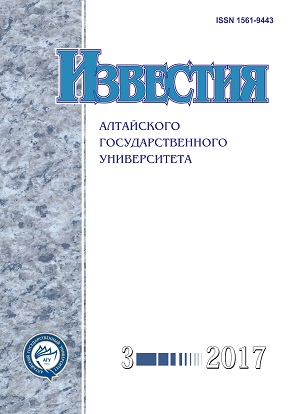The Issues of the Examination with the Use of the Polygraph in the Selection of Personnel in the Law Enforcement Agencies
Abstract
The main issues of the use of polygraph in the selection of personnel in law enforcement agencies are the following: the lack of solid, consistent, scientifically based and proven "theory of the polygraph"; impossibility to assess the compliance with the methodological requirements while examination on the polygraph (non-recorded examination); formal and "superficial" nature of the examination; the inability to attract the professionals to do the "human" examination on the polygraph who do not work in the organization, conducting HR check of the candidate; the absence of a formal and legal conclusion based on the examination results available at the request of the candidate to the candidate and "third-party" experts; inability to revalidate the results of the polygraph operator who gave the "staff test" with a polygraph; no legal liability of the false conclusions on the results of the study with the use of the polygraph in the selection of personnel.
DOI 10.14258/izvasu(2017)3-21
Downloads
Metrics
References
Приказ ФСБ РФ от 13 апреля 2011 г. № 151 «Об утверждении инструкции по организации и проведению профессионального психологического отбора в органах федеральной службы безопасности» (в ред. от 22.12.2016) // Бюллетень нормативных актов федеральных органов исполнительной власти. - 2011. - № 28.
Временная инструкция о порядке проведения опросов с использованием компьютерного полиграфа в таможенных органах Российской Федерации : приложение к Приказу ФТС России от 25.09.2007 № 1196.
Комиссарова Я.В., Мягких Н.И., Пеленицын А.Б. Полиграф в России и США: проблемы применения. - М., 2012.
Холодный Ю.И. Опрос с использованием полиграфа и его естественно-научные основы // Вестник криминалистики. - 2005. - Вып. 1 (13).
Сошников А.П., Пеленицын А.Б. Оценка персонала: психологические и психофизиологические методы. - М. 2009.
Оглоблин С.И., Молчанов А.Ю. Инструментальная детекция лжи (проверки на полиграфе) : академический курс. - М. 2004.
Детков А.П., Свободный Ф.К. Определение предмета, объектов и компетенции судебной психологической экспертизы информированности личности о расследуемом событии // Изв. Алт. гос. ун-та. - 2015. - № 2/2. D0I:10.14258/izvasu(2015)2.2-05.
Уголовно-процессуальный кодекс Российской Федерации (утв. Федеральным законом от 18.12.2001 № 174-ФЗ, в ред. от 03.04.2017).
Copyright (c) 2017 А.П. Детков, Ф.К. Свободный, И.А. Шлецер

This work is licensed under a Creative Commons Attribution 4.0 International License.
Izvestiya of Altai State University is a golden publisher, as we allow self-archiving, but most importantly we are fully transparent about your rights.
Authors may present and discuss their findings ahead of publication: at biological or scientific conferences, on preprint servers, in public databases, and in blogs, wikis, tweets, and other informal communication channels.
Izvestiya of Altai State University allows authors to deposit manuscripts (currently under review or those for intended submission to Izvestiya of Altai State University) in non-commercial, pre-print servers such as ArXiv.
Authors who publish with this journal agree to the following terms:
- Authors retain copyright and grant the journal right of first publication with the work simultaneously licensed under a Creative Commons Attribution License (CC BY 4.0) that allows others to share the work with an acknowledgement of the work's authorship and initial publication in this journal.
- Authors are able to enter into separate, additional contractual arrangements for the non-exclusive distribution of the journal's published version of the work (e.g., post it to an institutional repository or publish it in a book), with an acknowledgement of its initial publication in this journal.
- Authors are permitted and encouraged to post their work online (e.g., in institutional repositories or on their website) prior to and during the submission process, as it can lead to productive exchanges, as well as earlier and greater citation of published work (See The Effect of Open Access).








